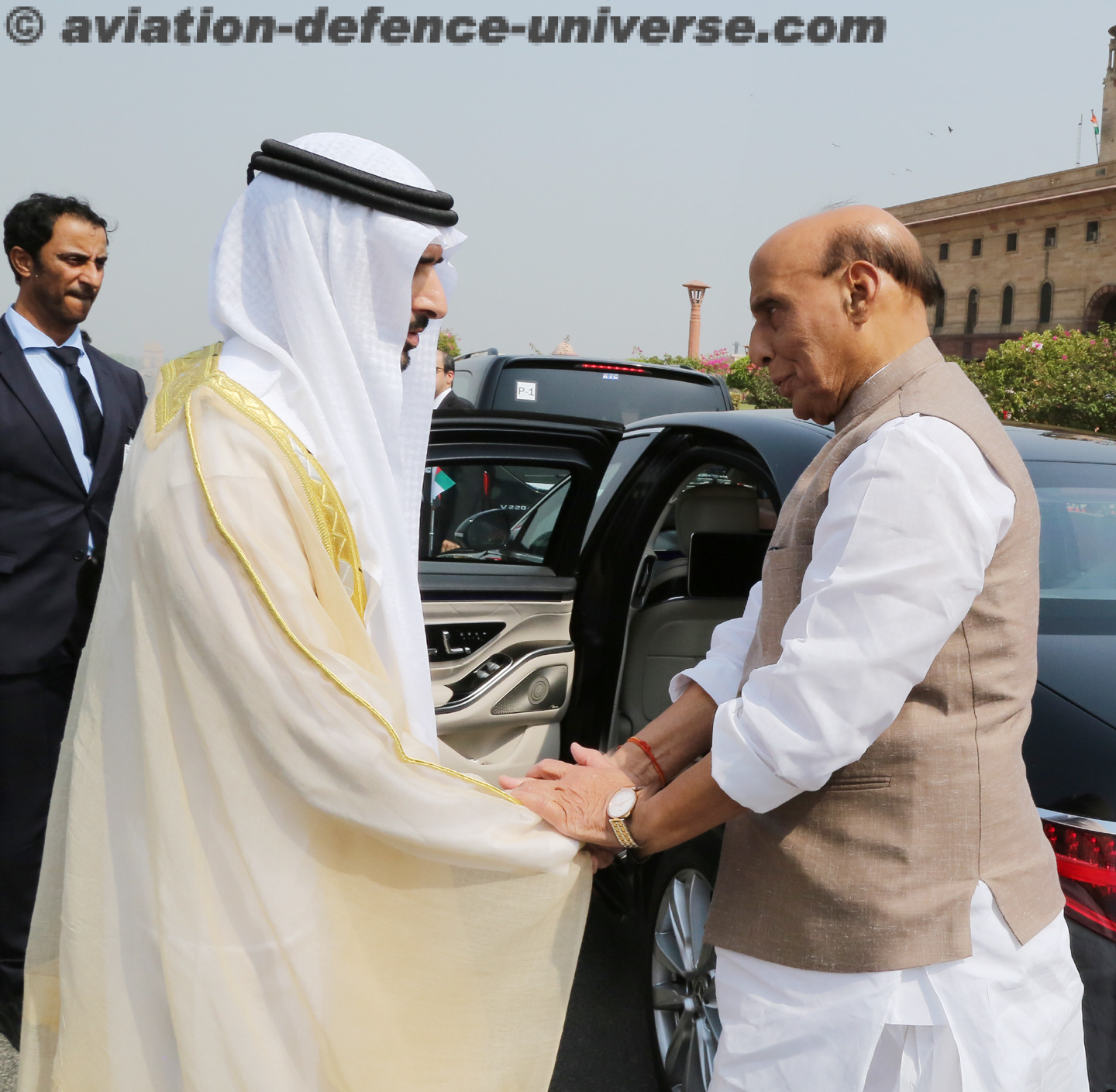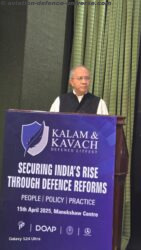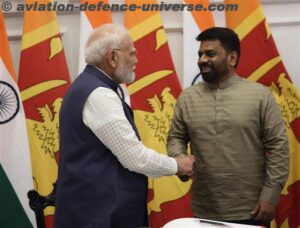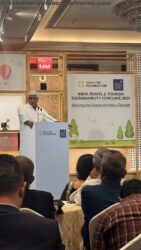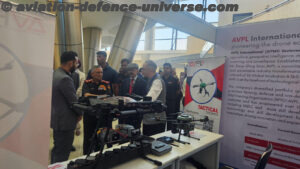By Lt. Gen Vinod Bhatia(Retd.)
New Delhi. 07 October 2016. PM Modi has demonstrated an unprecedented politico-military will by executing punitive strikes across the line of control (LOC) in Pakistan Occupied Kashmir (POK) . In an unexpected albeit swift , well planned, coordinated and flawlessly executed special operations, troops of the Parachute Regiment (Special Forces) executed surgical strikes at seven terrorist launch pads, from Bhimber to Kel, either side of the Pir Panjal ranges demonstrating our capability and capacities to hit when and wherever required.
The surgical strikes have signalled the exhaustion of India’s ‘Strategic Patience’ reinforcing ‘Strategic Restraint’ though with a difference and indicative of a ‘Strategic Resolve”. The strikes carried out in the tactical domain have strategic ramifications creating a decision dilemma for Pakistan. Pakistan went public refusing to accept that the Surgical strikes have taken place, terming these as mere skirmishes. Pakistan is left with no options, except to deny that the strikes took place.
The surgical strikes were both ‘Punitive’ and ‘Pre-emptive’ in that while punishing the perpetrators of the Uri terror strike, it also eliminated terrorist waiting at launch pads to infiltrate across the LoC to take advantage of the sensitive situation in the Kashmir valley and up the ante . The surgical strikes sent out a clear and categorical message to Pakistan and in particular the Pakistan Army which has waged the ‘Low Cost High Affect’ proxy war on our nation as a state policy for over a quarter of century.
The Army Chief Gen Dalbir Singh must be complimented on the choice of cross LoC targets, the terrorist launch pads and the strikes.The DGMOs call to his counterpart in the afternoon of 29th September saying that the operations have been closed gave a clear indication to Pakistan of the objectives, thus minimizing the chances of escalation. Pakistan for far too long has waged a war against India in the sub conventional domain resorting to the rhetoric of use of nuclear weapons in particular its recently acquired Tactical Nuclear Weapons. India has finally called Pakistan’s bluff and shaken it out of its comfort zone. Terrorism and terrorism emanating from Pakistan in particular is a threat not only in the region but the world. The Jus ad bellum that is the ‘Right to War’ is with India and most mega nations support India’s actions and are appreciative of India’s efforts in safeguarding its legitimate security interests.
The Army mostly for political-diplomatic considerations has shied away from including ‘Punitive’ and ‘Pre-emptive’ cross LOC operations as part of their sub conventional war fighting doctrine. The surgical strikes are a game changer and the Army will do well to now include these in the doctrine and build further capacities and refine its capabilities. The government post Pathankot and seemingly post the Uri terror attack showing a strategic restraint, focused on the diplomatic offensive and the economic options.
The public sentiment post Uri attacks had to be assuaged and Pakistan given a clear signal that this time they have crossed the ‘Lakshman Rekha’. To the credit of the government the response to Uri has been well orchestrated, synergizing all elements of national power, ie the diplomatic, informational, economic, political and equally important the military. The Military response is essential as it is visible and showcases a nation’s resolve to protect its people and interests.
Pakistan does not have many options. The probability of Pakistan stepping up the escalation ladder in low to very low. There are many contributors and indicators that Pakistan will continue to wage the proxy war as hither-to-fore albeit at a higher cost and caution. The internal security situation of Pakistan and its present economy does not allow Pakistan many options as it is well aware of India’s military superiority and the resolve of the government to ‘Hit where it Hurts’.
Till this strike ‘Strategic Restraint’ did not yielded the desired results. Will a ‘Strategic Resolve’ demonstrated now deter Pakistan from employing terrorism as a state policy? Pakistan will continue to wage the war in the sub conventional domain. The Pakistan chief General Raheel Sharif is expected to retire on 28 Nov, it is also rumoured that he is likely to be promoted to Field Marshal. Will he do something to redeem his image, it is doubtful as he is well aware of the consequences of a war with India. It is a historical fact that Pakistan stands defeated in all previous wars. India should expect and be prepared for terror attacks in the metros and the hinterland. There are one too many vulnerable areas and soft targets, the intelligence agencies and the police have to now live up to the task at hand and mitigate this threat. The security forces and police should also be fully prepared to thwart high visibility strikes in the metro.
It is an imperative to structure, equip, enable and empower our Special Forces to be effective contributors to national security. These are cost effective forces with a high payoff and a high degree of assurance of success.
The key question is – Is India as a nation and the Armed Forces fully exploiting the potential of our SOF? A clear and concise answer is NO. The major weakness is the lack of a lean and mean, agile and versatile joint special force under a single commander. This can be achieved by reorganising part of the Special Operations Forces (SOF) under the Special Operations Command (SOC). The SOC should be structured and organised as a truly integrated tri-service command under the CDS with integral lift capabilities.
The roles assigned to the SOC in pursuance of the national security objectives would be power projection and intervention to safeguard our national interests and assets in the region. Assistance to friendly Foreign Countries (FFC), albeit on invitation and augment the war effort. The creation of a SOC is a strategic imperative as India embarks on the road to be a responsible and risen regional power
Another major area which needs to be urgently addressed is making up critical equipment voids. SOF are woefully short of equipment, with critical deficiencies in firepower, communications, surveillance, insertion capabilities and mobility. The SOF requirement is of low population, high technology arms and equipment. The procedures to procure equipment for SOF is the same as for all others following the DPP 2016. This has obviously resulted in near zero procurements. It has been over two decades since the Army has been trying to procure essential arms and equipment for the SOF, like combat freefall parachutes, small arms, sniper rifles, light strike vehicles, underwater diving equipment, communication equipment, laser target designators, heavy drop equipment and ATGMs.
These still remain in various stages of procurement or development. Even low technology equipment like Parachute Jump Boots and Airborne Helmets being indigenously developed continue to be in the development and trial stages for over two decades . The criticality has been compounded with the raising of additional Parachute and Parachute (SF) units.
The envisaged procurements have not kept pace, leading to the existing inventory being rationalised, in effect the poverty has been shared. It is difficult to comprehend as to how the MHA succeeds in procuring state of the art weapons for the CAPF, where in the MOD succeeds only in delaying all procurements, even of similar weapons which are in service with the CAPF. It is hoped that this will get corrected by the impetus to modernisation and priority in making up critical voids accorded by the Defence Minister.
In spite of the chances of escalation being low, the Armed Forces should be fully prepared and ready for war. Operational preparedness is a must for war prevention. The armed forces should also review and beef up the security of the vulnerable administrative installations and bases as these will be the likely targets.. As the Army says the battle is won, the war continues.
Lt. Gen Vinod Bhatia (Retd) is Director CENJOWS and former Dirctor General of Military Operations(DGMO). The views in the article are solely the author’s. He can be contacted at editor.adu@gmail.com.
















